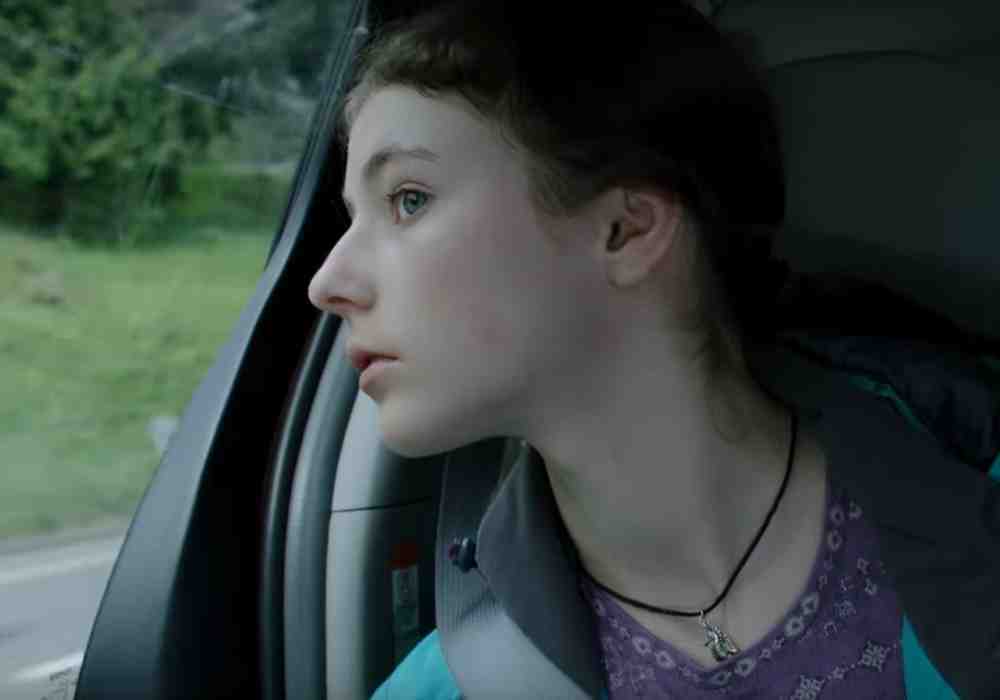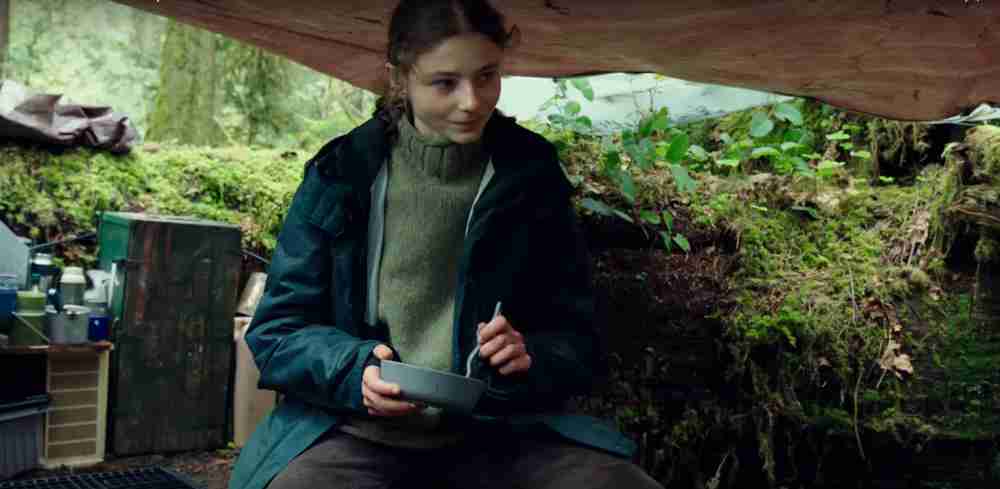Thomasin McKenzie tracks Tom’s journey from girl to young woman, increment by increment. This is the seventh piece in our Special Issue on Debra Granik’s Leave No Trace , which is now available as an ebook.

Thomasin McKenzie’s performance as Tom in Leave No Trace beautifully realises the process of coming-of-age: increment by increment, she tracks a girl’s transformation into a woman. Tom grows up in unusual circumstances, living in the woods with her veteran father, Will (Ben Foster). But Debra Granik’s film tracks the same process of parent-child separation that we all go through. As Tom is exposed to the world outside of her father’s orbit, McKenzie shows us all the ways in which Tom grows up: learning social skills, gaining self-confidence, and growing further apart from her father as a result.
An isolated childhood in the forest

With minimal exposition in Granik’s script, Thomasin McKenzie uses her physicality to communicate Tom’s familiarity with the rituals of the woodland life her father has shaped for her. Tom shows no sense of effort or concentration in the way she finds food, cooks, cleans, or jumps into one of Will’s emergency drills; she has been living in the woods for a long time. McKenzie’s hands work faster than the speed of thought, so we know Tom does this every day — it’s drilled into her bones. She’s obviously very close to Will: when they’re around each other, every one of McKenzie’s movements is a reaction to Foster’s, and she looks to him, as if reflexively, for approval or permission. That deep trust, love, and dependence goes both ways. Without a hint of panic, Tom snaps her father out of a PTSD episode; McKenzie fixes her gaze on Foster and adopts a soft but commanding tone of voice, so that Will feels safe in the knowledge that his daughter has everything under control.
McKenzie brings an intense curiosity to Tom, making us realise that the forest may no longer be enough for a growing girl with such potential. Will restricts his daughter’s contact with the outside world and teaches her not to own material possessions beyond necessity. But when Tom finds a necklace on the side of the road and hides it, McKenzie chooses a cheeky smile instead of betraying any signs of guilt. It’s our first sign that Tom is thrilled by the thought of something more, eager to explore life outside of the sheltered world her father created for her. When father and daughter make one of their occasional, brief trips into the city, McKenzie’s eager eyes lap up anything they land on, and we see just how hungry Tom is for all that she’s missing. Their restless movement is evidence of Tom’s active, curious mind.
Want to read the rest of the article?
Get the Leave No Trace ebook
Relive the highs and lows of Debra Granik’s remarkable coming-of-age story and discover how the filmmakers brought it to life.
Get the ebook on Leave No Trace >>
More on Leave No Trace
Back when Leave No Trace premiered at Sundance, Editor-In-Chief Alex Heeney wrote a shorter tribute to Thomasin McKenzie’s performance. Both Alex’s essay on Ben Foster’s performance and Gillie Collins’ essay on coming-of-age in Leave No Trace are essential companion pieces to this one (as are all the pieces in this issue).
Other coming-of-age performances
Coming-of-age performances are some of the most satisfying performances to watch: actors can show their range by tracking a relatable and significant character arc. Timothée Chalamet in Call Me by Your Name is a prime example (and we’ll be publishing more writing on him this month!). Josh O’Connor was brilliant in coming-of-ager God’s Own Country; Jack Lowden is an expert in realising this kind of character growth; as is Noée Abita in Léa Mysius’ debut Ava. [/wcm_restrict]

